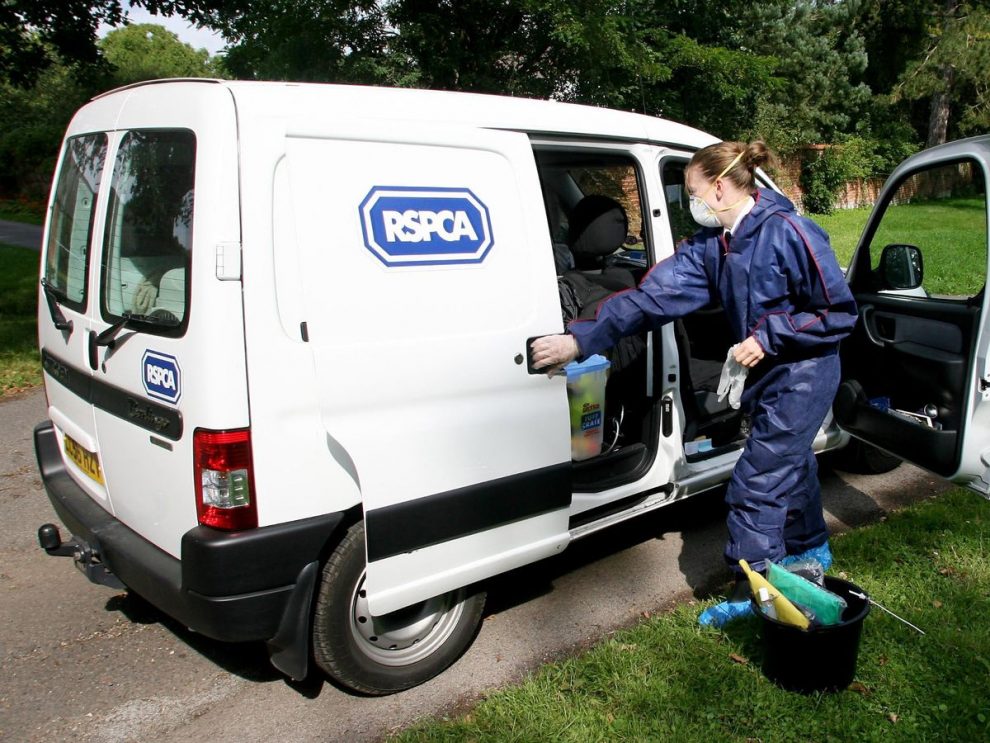A NEWPORT man has received a prison sentence after he caused unnecessary suffering to his American bulldog type dog – Crystal – who collapsed due to heat exhaustion.
Crystal had been left without adequate water or shelter during hot weather and had been left in the garden since the morning of 18 July 2022. By the afternoon of 19 July Gwent Police were called by concerned members of the public after she appeared to be in a slumped collapsed state. She was removed from the garden, instantly cooled and provided with water.
Despite these attempts at cooling and a journey in an air-conditioned police car to the vets, she was still measuring at 39.8 degrees on admission to the vets – which is close to fatal.
Walter Kanhukamwe (d.o.b 29/07/2001) of Somerton Road, Newport appeared at Newport Magistrates’ Court on Tuesday 11 July for trial after pleading not guilty to two animal welfare offences.
He faced offences under the Animal Welfare Act that he caused unnecessary suffering to Crystal by leaving her exposed to high temperatures without providing her with suitable shelter or a sufficient amount of water leading to hyperthermia.
The second offence was that he did not ensure that the needs of two dogs – Crystal and another American bulldog type dog known as Peachey – were met to the extent required by good practice. (full offence below)
He was found guilty on Tuesday 11 July and was sentenced to 12 weeks of custody for the one offence and 16 weeks for the unnecessary suffering offence – these are to run concurrently. Kanhukamwe was banned from keeping dogs for three years and Crystal – who has been in RSPCA care – has been signed over to the charity to be rehomed. He was also ordered to pay a £128 victim surcharge.
In a written statement presented to the court from RSPCA inspector Emma Smith, she said she was made aware of an incident where Gwent Police removed Crystal from a garden after she was found “in a collapsed state suffering from heat exhaustion”. This incident was subsequently passed onto the RSPCA for investigation.
In evidence presented to the court from a veterinary surgeon, who saw Crystal on 19 July last year, she said the dog was presented “after being seized due to being collapsed in a garden with no shade or water on what was an extremely hot day (30 degrees celsius at the time of the incident with minimal cloud cover).”
She said: “When she was brought in, this was after she had been left in a garden, since the evening before (arrived approximately 2pm). She had initially been actively cooled by the neighbours prior to her arrival.
“On arrival she was panting, almost in respiratory distress she was panting so much (they do this in an attempt to cool down as they cannot perspire).
“Her temperature when she came to us was 39.8, we class this as hyperthermia as it is an extreme increase of temperature but not due to an underlying disease (normal temperature should not exceed 38.5 degrees celsius) and this was after she had been cooled down.
“From my clinical point of view, this dog was on the verge of going into heat stroke and from being this temperature could still have showed signs a few days later. It was lucky she was found when she was as the consequences very likely would have been fatal if her temperature was not brought down to normal within the next hour/so, despite this she would have also become progressively more dehydrated.”
She added: “By not seeking veterinary attention in my professional opinion the owner of this dog failed in their duty of care to the dog with respect to the hyperthermia, verging on heat stroke and dehydration through his neglect caused the dog to suffer unnecessarily.”
The court also heard that the RSPCA had visited the home of Kanhukamwe multiple times before this incident due to concerns about two dogs being left for long periods and left in unsuitable conditions. RSPCA inspectors issued Animal Welfare Warning notices and requested improvements were made in respect to Crystal’s and Peaches’ environment. Crystal also had a condition known as cherry eye which RSPCA inspectors requested was seen by a vet.
During one visit, inspector Smith said: “He confirmed to me that Crystal had come to him with a cherry eye and that he was using drops on her which the previous owner had given him. He advised that he had not taken her to see a vet as he believed they would want to remove the lump and he was not prepared to have this surgery done.”
When she spoke to him about the environment the dogs were living in, Kanhukamwe said: “He claimed that the dogs had cardboard available to them for bedding and that there were no hazards present. He said he didn’t provide any other form of bedding as the dogs were destructive and would shred it.”
At court, in mitigation, Kanhukamwe said he did not go out to cause deliberate suffering.
Following the case, RSPCA inspector Emma Smith, said: “Kanhukamwe had been given very clear advice about the importance of not leaving the dogs for long periods and the importance of providing suitable shelter, bedding and adequate supplies of water.
“It is heartbreaking to think about what Crystal went through on that hot summer day – it was completely avoidable. Luckily she pulled through – but her temperature when she arrived at the vets was close to fatal – so it was very touch and go for a while.
“Thankfully she recovered fully and hopefully soon will have her forever home.”
Whilst in RSPCA care Crystal received an operation to remove her cherry eye. Peachy had already been rehomed by Kanhukamwe earlier last year.


















